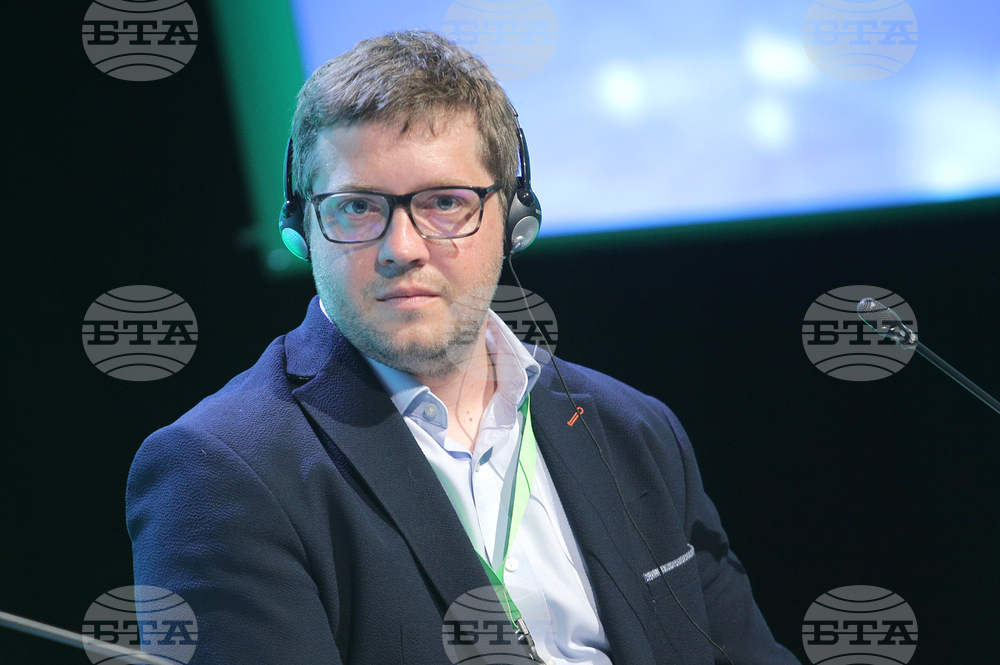We are working to make artificial intelligence (AI) explainable and understandable to everyone, even those who have nothing to do with high-tech and are far from digital literacy, said Monika Manolova, innovation expert at Digital National Alliance, during the forum “Green Transition in Central and Eastern Europe 2023”, held in Sofia.
Without such digital literacy, we cannot continue to operate. Literacy is about understanding how models work fundamentally, not just using AI features, she said.
In the future we will live with AI everywhere, it will be in all devices and everyone will grow and interact with it. That is why it is important to use ethics now to regulate the evolution of future relationships with this extremely powerful tool, said Monika Manolova. Ethics is viewed differently by people. For some it is ethical and important just to survive, for others ethics is related to personal space and so on, Manolova said.
Although there are only 6 million people in Bulgaria, we are now 6th in the world in terms of medals in mathematics and exact science olympiads for children, reported participants in the “Green transition in the countries of Central and Eastern Europe 2023”. Every year we have 40 children with very good achievements in the exact sciences, real prodigies. It is noteworthy that 42 per cent of scientists employed in science and mathematics (STEM) are women.
The AI Act adopted by Brussels represents the first rules to be created for the use of artificial intelligence, said Petr Bratsky (Czech Republic) senior lawyer in the regional Technology, Media and Telecommunications team. These are norms that are very similar to all the others we apply – if you want to market a service or product you have to follow clear requirements. For example, to have a prior conformity assessment of products. In other words, all the obligations that businesses deal with even now. From an ethical point of view, these are sensible requirements, Petr Bratsky said. Technological developments are far ahead of legislation. Customers ask if ChatGPT can be trusted and if there is a security implication for it and what the intellectual property is when using AI services, Bratsky added. Brussels’ AI Act contains over 100 articles and is difficult even for experts. One can get confused very easily. Such systems can be a stumbling block for law enforcement and work on this legislation will take a long time, said Petr Bratski.
Radoslav Milchev, head of the Artificial Intelligence Lab at Sofia Tech Park, said that the idea of artificial intelligence cannot be assessed accurately enough. We are talking about a new technology that has its place and will find more and more applications. It also leads to things that we humans will lose. AI can be a security tool, analyzing all the people around and finding those who are armed. It is possible to manipulate genes and embryos, and that is why we now have a synthetic embryo. Вече сме пуснали духа от бутилката и проблема да контролираме този дух в полза на обществото. Той не е нещо лошо, но трябва да го поставим в ръцете на хора, които знаят и могат. Изкуственият интелект вече не е програма – той е “нещо”, което се научило и самообучило. При вземане на грешно решение от AI няма кой да поеме отговорност за написването на програмата, посочи Милчев.
Georgi Kirilov – chief researcher and technology director at Crisp Labs pointed out that Pandora’s box is open and we can do experiments much cheaper. We had, for example, a project related to the evaluation of green funds. We were able to detect, with the help of AI, that at least a quarter of the funds did not comply with the criteria, he said.
Using AI, you can get wrong answers and wrong sources and fake authors, panelists said. Artificial intelligence does not recognize such concepts as lie and truth. It works with other concepts, uses multibillion connections, and the answer to the questions can be completely unpredictable.
Kiril Kirilov – operational director of the system behind the Bulgarian supercomputer, indicated that the machine is now calculating climate changes in the next 30 years. Supercomputers live for about 5 years, because in that time comes a computer with 30-40 percent better computing power and less electricity use. We inform each of our users how much energy is spent on solving their task, said Kiril Kirilov.
Because of the use of ChatGPT, a lot of energy is consumed because people ask it all kinds of questions. By 2030, about 8 percent of all energy sources will be used to power artificial intelligence, said participants in the discussion.
